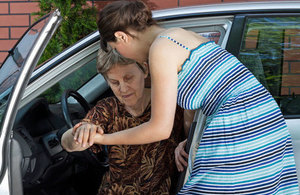Stress-free travel for dementia patients: apply for funding
Organisations can apply for contracts of up to £175,000 to develop ways to reduce acute anxiety of hospital visits for people with dementia.

Innovative organisations can apply for contracts of up to £175,000 to reduce the stress of hospital visits for people living with dementia.
The Welsh Government and the Department for Transport are investing in a new competition to help people living with dementia. The aim is to find ways of making it less stressful for them to travel to hospital and attend appointments. Proposals can be innovative approaches or technical solutions.
There are around 850,000 people living with dementia in the UK. By 2050, there are likely to be be 150 million people worldwide living with dementia.
These people are often affected by other health conditions and need to attend hospital. This can be for both out-patient appointments or emergency departments. People with dementia tend to stop driving within 3 years of diagnosis. They can find it difficult to plan journeys, travel alone and deal with new environments. This can sometimes cause them to become too anxious to attend hospital.
This is a Small Business Research Initiative (SBRI) competition run in partnership with Innovate UK. Betsi Cadwaladr University Health Board (BCUHB) is managing the competition.
The competition is in 2 phases:
- phase 1 - proof of concept development contracts of up to £50,000
- phase 2 - demonstrator projects of up to £175,000
Competition information
- this competition is open now
- the registration deadline is Wednesday 19 October 2016
- the application deadline is 12 noon on Monday 7 November 2016
- there will be a briefing event for potential applicants on Friday 21 October 2016
- to register for the briefing event email bcu.sbridementia@wales.nhs.uk
- any type of organisation can apply but we expect this competition to be particularly suitable for SMEs